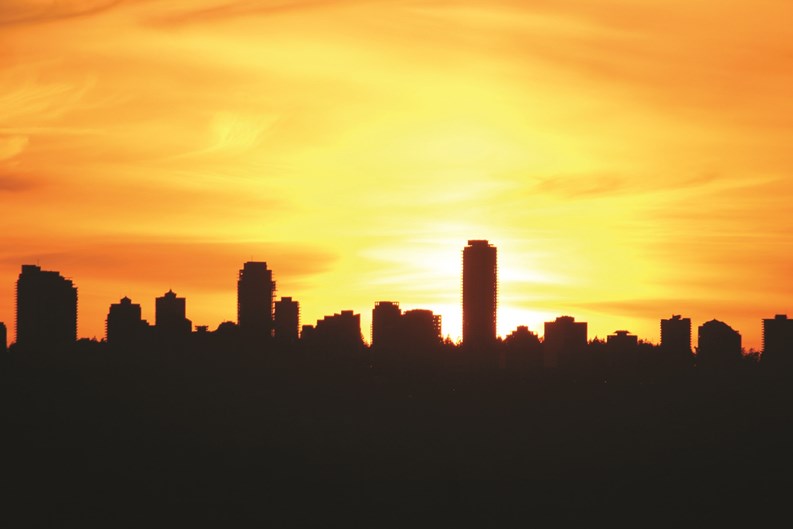The implications of the attacks of September 11 are far-reaching, with tentacles stretching around the world. But what about right next door? An entire section of Manhattan has been forever altered, as have the lives of all the people who call TriBeCa, Battery Park City and the Financial District home. What will become of these residents? After all that has happened, will people still want to live here? And how will that affect the real estate market, both in Lower Manhattan and elsewhere in the city?
9/11: Before and After
By all accounts, parts of the New York City real estate market were in decline before September 11. With stocks stalling and layoffs looming, the dynamic was already shifting from a sellers’ to a buyers’ market. 2001 was already off to a dubious start for the industry.
Lower Manhattan, however, was not much impacted, according to Warren Wechsler, first senior vice president of the Real Estate Board of New York (REBNY), the city’s largest real estate trade association.
"Conditions were relatively favorable," he says. "Office prices were steady. Housing prices were still increasing, though not as fast as a few months before."
James Ferrari, chairman of Manhattan’s Benjamin James brokerage firm, concurs. "There were forecasts of a slowdown, but the market wasn’t going back," he says.
There were not the multiple bidding wars of the previous year, but according to Ferrari, the market remained "excellent…extremely tight and fast." The reason, he says, was the low interest rates that made it easy for someone with good credit to borrow money.
Then the Towers fell, and everything went haywire.
"August is the slowest month," says Lew Lydiard, an associate broker with Manhattan’s Charles H. Greenthal and Company in Manhattan. "Things start to pick up after Labor Day. This year, the seasonal boom after Labor Day never really happened."
In the weeks following September 11, says Lydiard, business was at a standstill. Attendance at open houses was one or two people; sometimes nobody showed up. "It was frightening," he says. "In a word, uncertain."
But the bottom never quite fell out. The predicted 50 percent discounts in list prices haven’t materialized. "The buyers are smelling blood," Lydiard explains. "Prices came down a little, but not what people were expecting."
As an example, Lydiard cites one property that was in contract a few days before September 11. After the attacks, the buyers rejected the contract, demanding a 20 percent price reduction; The seller did not budge.
For now, this seems to be the trend. Rather than offering heavily discounted TriBeCa lofts, owners are staying pat. This has affected the brokers ("In TriBeCa, the phones are not ringing," Lydiard says) but not the prices–so far.
According to Ferrari, real estate in Lower Manhattan is a long-term commitment, and owners understand that. Ironically, with its diversity of businesses, New York has not been hit quite as hard economically as other cities in the country, he says, citing reports by The New York Times and The Economist that rank New York 13th and 14th, respectively, among cities adversely impacted by 9/11. "There was a perforation of confidence," says Ferrari, "[But] there are still transactions happening."
Lydiard says any given client of his might knock $10,000 off the asking price of an apartment listing for $450,000. A decline, yes, but not the catastrophe some have anticipated.
Wechsler characterizes the current mood as "watchful waiting." Ferrari calls it "a pause." Either way, the post-traumatic hammer has not yet fallen on Lower Manhattan residential real estate. But as Ferrari puts it, "In the long term, New York is fine. Bedrock is gold."
Battery Park
Residents of Battery Park City, the 92-acre residential development on the southern tip of Manhattan and within spitting distance of the World Trade Center, have been the hardest- and longest-hit survivors of the 11th. Most of the 100,000 people displaced or left homeless by the terror attacks lived in Battery Park City’s network of condominium and rental buildings, and between the trauma of the attack itself, the lingering dust and ash from Ground Zero, living in a police-controlled "frozen zone," and worrying about the structural soundness of their homes, it’s been a very, very difficult time.
Slowly, however, the neighborhood is reviving. All but one of Battery Park City’s buildings have reopened, and most of the residents have been allowed to return home to begin cleaning up and getting on with their lives. The city and state are doing what they can to help: the New York State and New York City Department of Transportation are working jointly to design and install a pedestrian bridge over West Street at Rector
Street to help ease access to the 4, 5, N, and R trains for commuters, and the New York Power Authority is providing Battery Park City with reduced-price electricity. Commercial buildings around Ground Zero are back online and open for business, and small businesses like restaurants and retail shops have reopened to serve downtown dwellers.
Difficulties still abound, however. Plans by the Millennium development company to open a mixed-use Ritz-Carlton hotel/condo tower in early October have been put off indefinitely. The tower, which was actually two buildings in one–a 14-story, 298-room luxury hotel with an adjacent 113-unit condo tower–was poised to open on the eve of the attacks, and may open in early 2002. Asking prices for condo units, however, will not be affected by the delay. In a recent interview in the Washington Post, Millennium founding partner Brain Collins remarked, "It’s been challenging," but that his company doesn’t make a practice of "selling assets below their value" and won’t be marking-down Ritz-Carlton condos. Said Collins, "If we were going to change the price anywhere, it would be in Battery Park City–and we’re not doing that."
As in the rest of Lower Manhattan, the mass exodus that many predicted for Battery Park City has yet to materialize. Many people living in the area are more determined than ever to clean up, rebuild, and stick it out.
The "this-is-our-home-and-we’re-sticking-to-it" sentiment was expressed recently by a Connecticut real estate broker quoted on The Corcoran Group’s Web site earlier this Fall; "A lot of people are saying, ‘let’s wait and see.’ Everyone [brokers] has Battery Park City people who are looking [to move out of the city], but it’s not like there are busloads of people fleeing New York with mattresses on their backs."
Something in the Air
Certainly there are reasons to leave Lower Manhattan, not least of which is the quality of the air near Ground Zero. People the world over have seen images of the ruins of the Twin Towers, but only those who live in or have visited New York can describe the lingering smell that Wechsler calls "horrific."
While the odor has diminished, residents say the area still has a distinctive smell, especially when it rains. "The air generally smells really bad," says David First, a musician who lives on Dutch Street, two-and-a-half blocks from Ground Zero and thinks the air "is also likely more dangerous than anyone will admit."
A resident of Liberty Street who requested anonymity was evacuated from her apartment for a month after the disaster–and says she developed pneumonia within two weeks of moving back in.
Paul Bennett is a computer consultant who has lived on Gold Street for nine years. "I’m most concerned about air quality and the pollution from Ground Zero," he says.
Bennett, for one, is leaving.
"I’ve been thinking about moving for a couple of years," he says, "mainly because of the noise problem–honking horns, garbage trucks at three am, et cetera. However, 9/11… finally got me to do something about it."
However, other residents have been pleasantly surprised by the reactions of management and landlords in the aftermath of the tragedy.
"The building management and people in the neighborhood have made a big effort to make the neighborhood feel whole again," says Lisa Fried, an attorney who moved into her apartment on Worth Street ten days before the disaster. According to Fried, her building’s managing company, Manhattan Skyline Management, "sent out letters earlier this week announcing that they’re giving us five percent rent abatements from 9/11 through the rest of 2001."
Fried plans to stay in her apartment, and perhaps extend her lease. "I have the feeling that most people [in my building] were back within the first two weeks after 9/11, if they even moved out at all."
First concurs. "Everyone in my building seems to be staying," he says.
Bennett, however, says he’s spotted a different trend.
"There’s been a lot of people leaving–nearly every weekend I see a moving truck parked outside, with stuff being loaded on to it," he says. "Though tonight I did see someone moving in. Rents have dropped dramatically. I hear they are renting one bedrooms for $1,900–that’s not 50 percent, but it’s much less than market."
By-Products and Side Effects
Other reasons cited by those packing up and shipping out of Lower Manhattan include the subway situation, the struggles of local businesses, and the post-traumatic stress of living so close to the site of such grief and terror. "Public transportation interruptions have made the area less inviting and convenient," Wechsler explains.
Wechsler also points out that retail and restaurants in Chinatown and Little Italy–areas that draw most of their business from Lower Manhattan–have been hit hard, as have tourism-related activities. "Any business that caters to discretionary income has been affected," he says.
The struggle of these businesses has made recovering emotionally from the trauma of September 11 still more difficult. "Some stores are gone … all the stores are complaining," says First. "It’s really too bad. We were all hurt by the first couple of weeks of course, but now the problem is probably more psychological than anything else."
Ferrari suggests that New York will be even stronger in the wake of the attacks. "From a security aspect, it will be run like a small country," he says, and posits that the way that Washington–and the rest of the nation, by extension–views the city will differ from the collective sentiment during the recession of the 1970s, when the federal government refused to help New York financially. "Pro-New York is now a national thing," says Ferrari.
The Face of the Future
So what will happen to real estate in Lower Manhattan?
For his part, Wechsler refuses to make a prediction. He does point out that the area has the support of the New York Stock Exchange, "which is very important."
Lydiard speaks of clients who vacated their Battery Park City apartments for Westchester, and how much trouble they have had adjusting to life away from the city. "They’re regretting it already," he says, adding that the exodus to the suburbs has already blown itself out.
Remember and Rebuild
Optimism and resolve seem to characterize the outlook of many. "New York is going to rebound–big time," predicts Ferrari.
Residents largely agree. "As difficult as it has been, there has been an incredible amount of inspiration coming from people’s actions since September 11," said First. "There is something important going on down here–perhaps even monumental–and as a New Yorker, I want to be part of the energy of mourning and renewal."
Mr. Olear is a freelance writer living in Astoria, Queens.





Leave a Comment